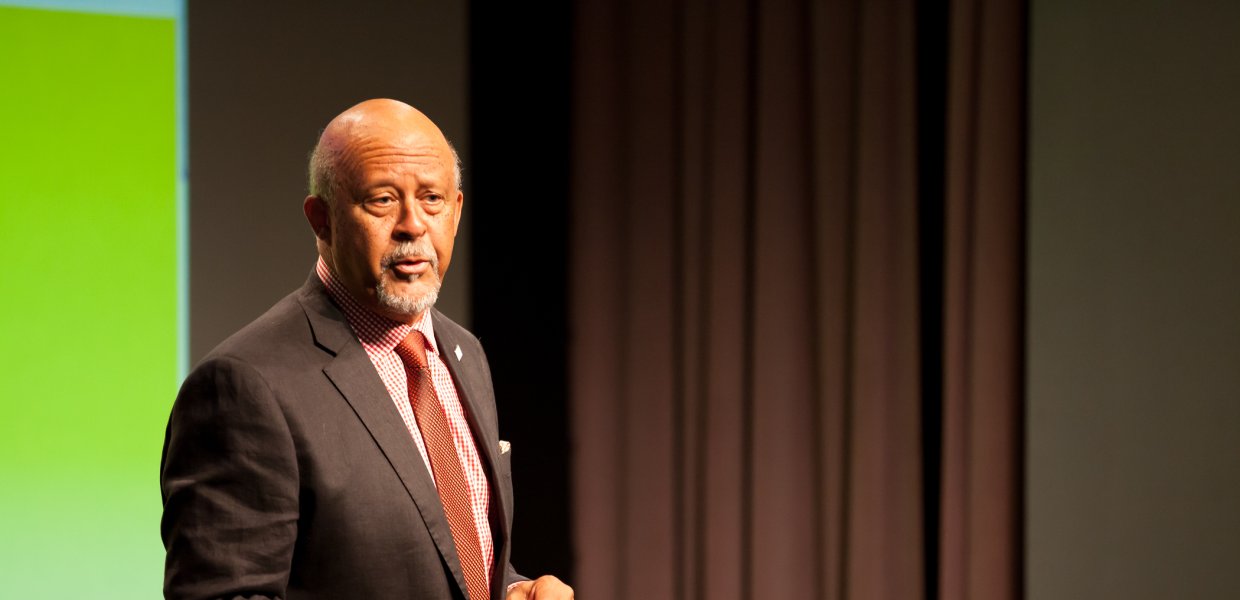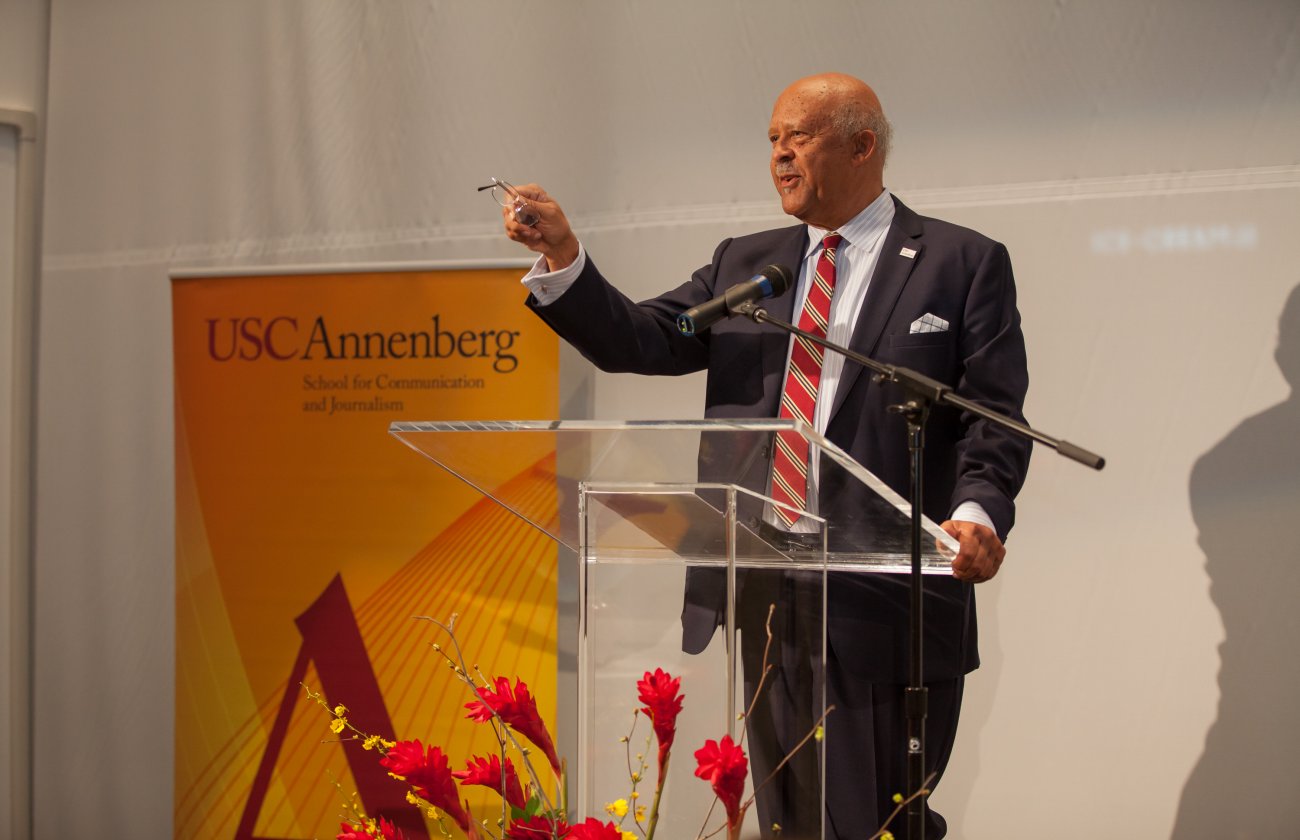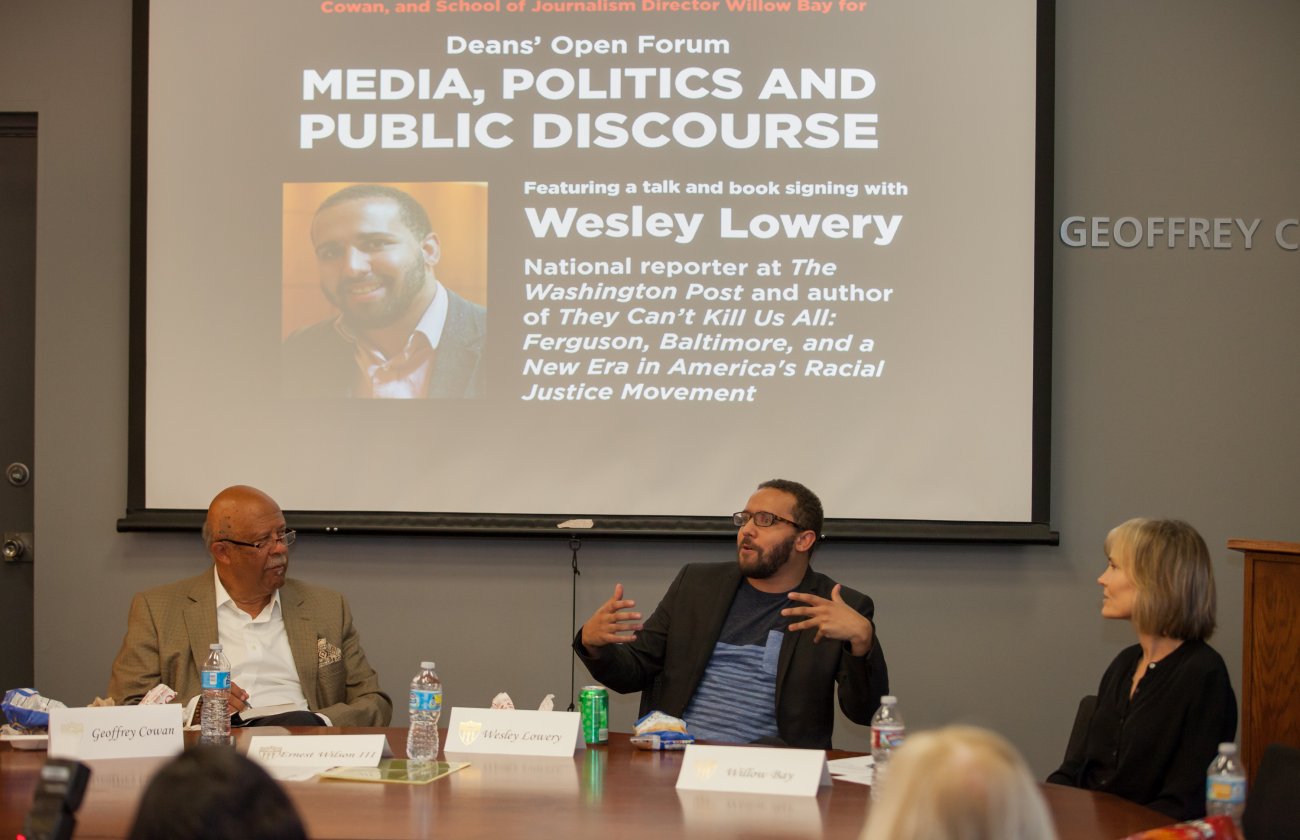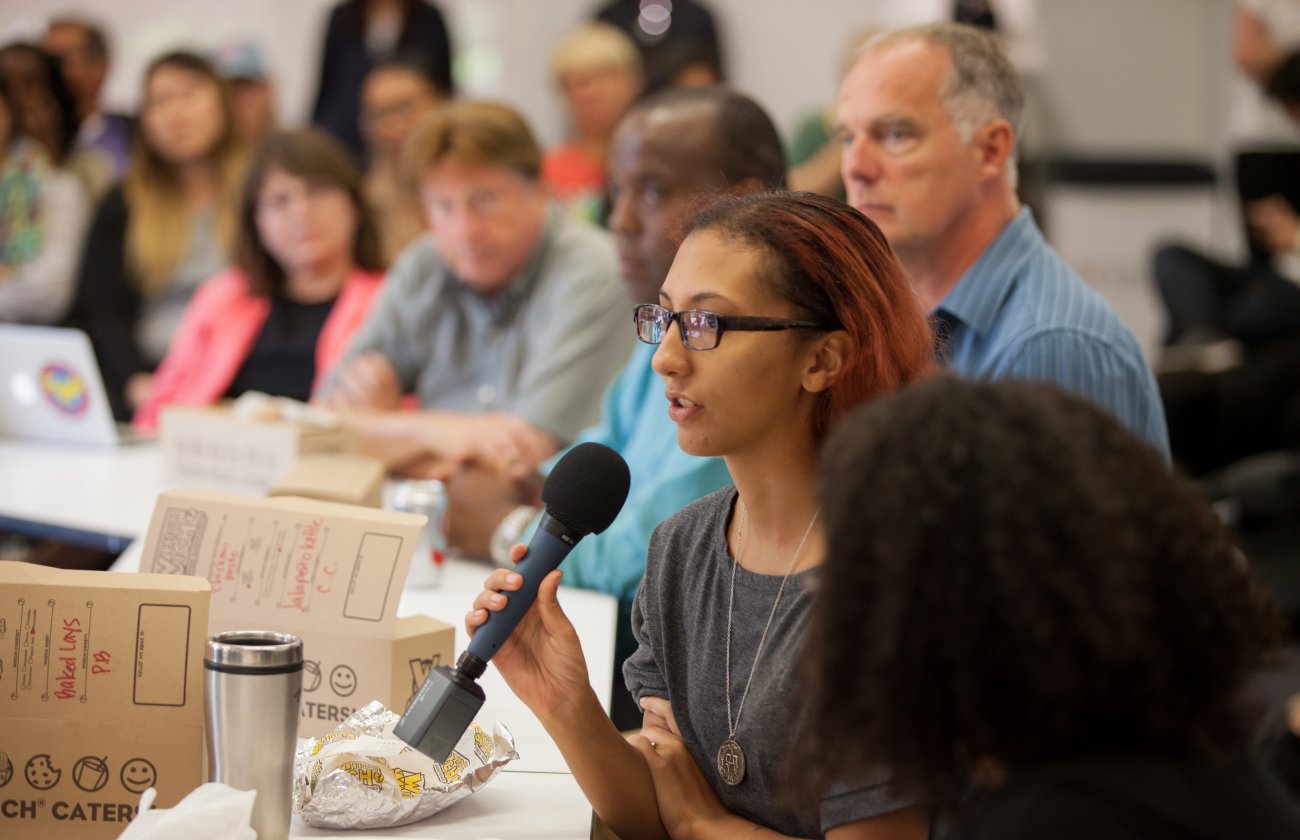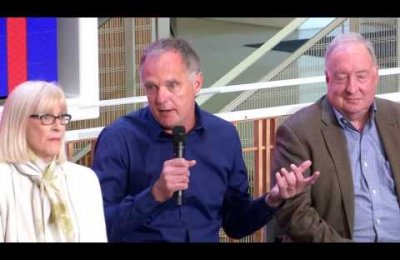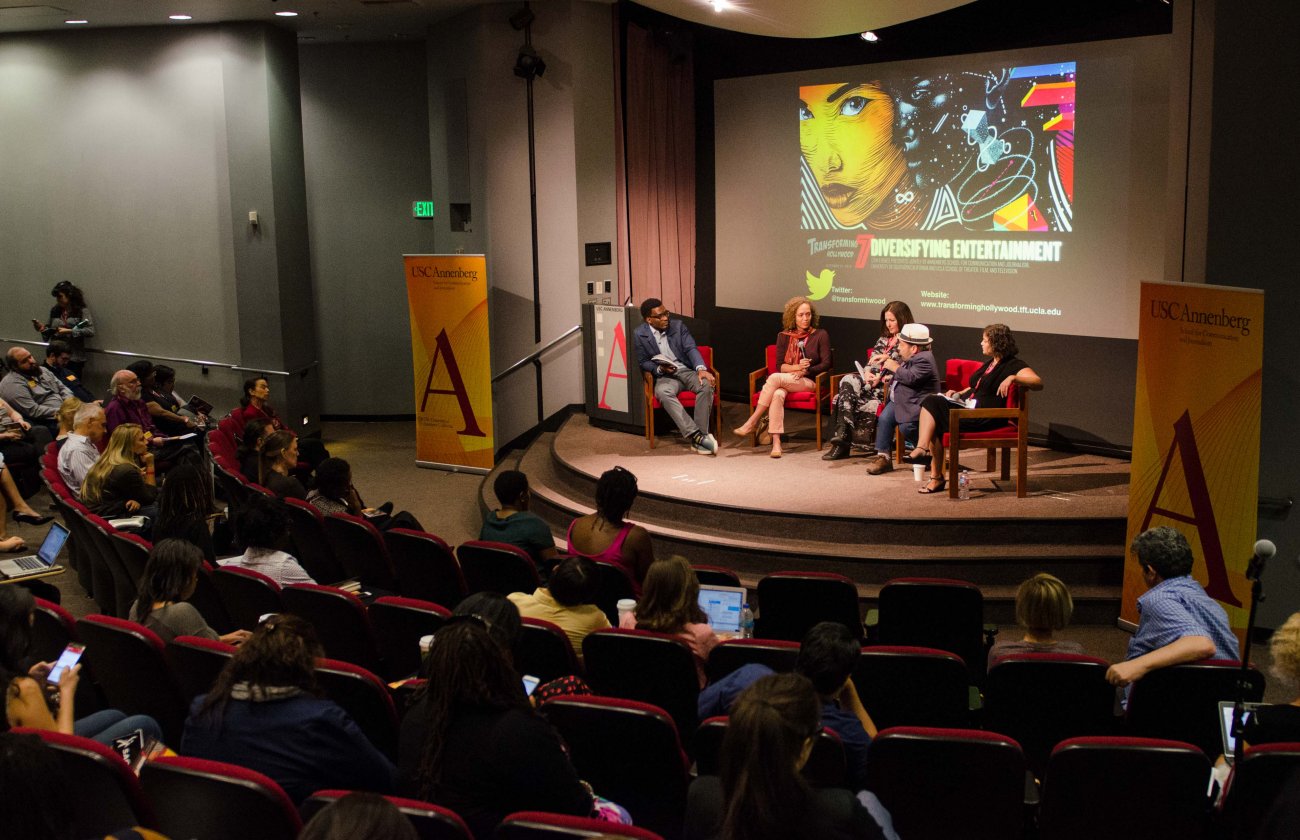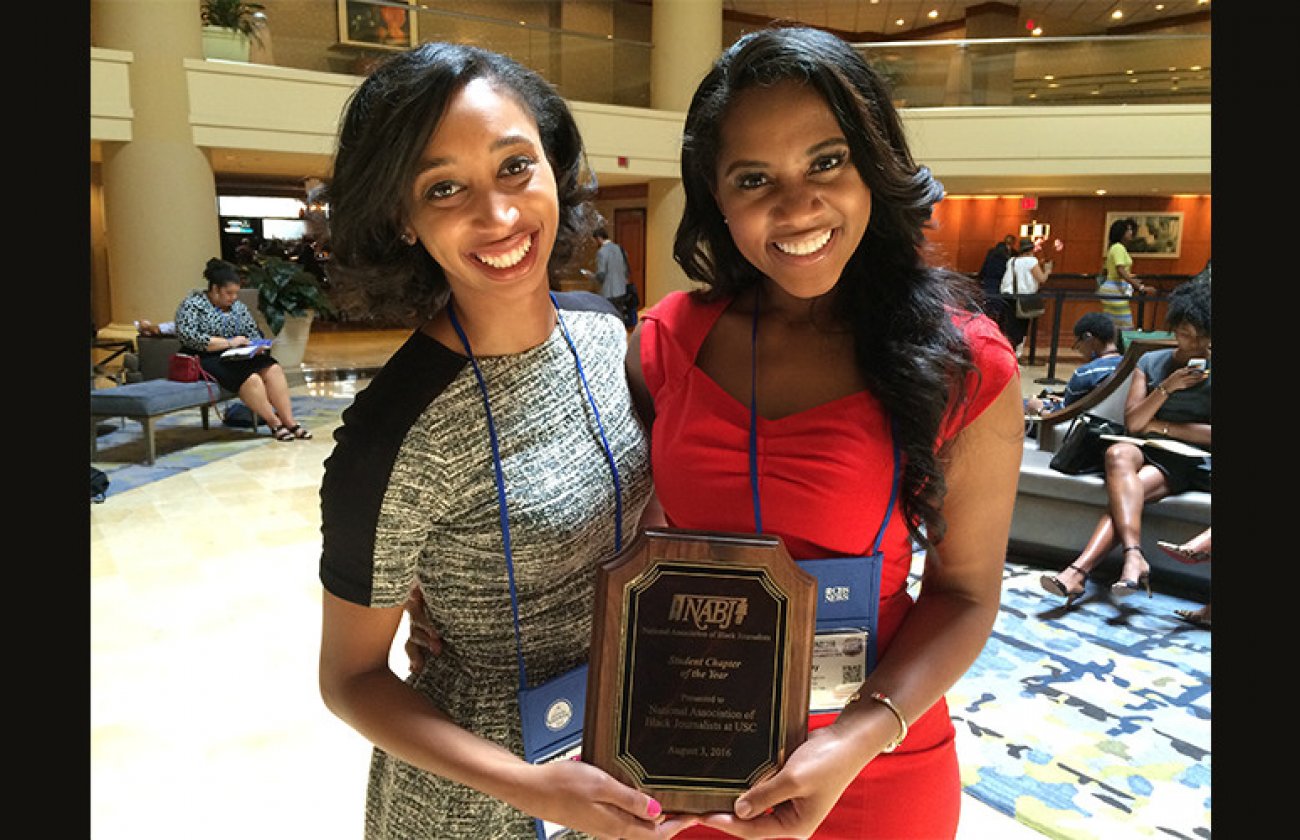The American public has measurable, significant and unmet information needs at the individual and community level, a team of USC Annenberg researchers concluded at a June 26 meeting with the Federal Communications Commission.
The FCC’s Office of Communications Business Opportunities hosted the public meeting to review a report prepared by Dean Ernest J. Wilson III, Director of International and Strategic Partnerships Carola Weil and doctoral student Katherine Ognyanova. (View their presentation slides.)
The USC Annenberg team “was commissioned to examine existing research into the critical information needs of the American public and market-entry barriers into participation in the communication industry,” according to the FCC. “The research will inform the Commission’s 2012 Report to Congress about barriers to participation in the communications industry, also known as the Section 257 Report.” They were joined by Co-Principal Investigators Lew Friedland of the University of Wisconsin-Madison and Philip Napoli of Fordham University. They assembled a team of more than 30 experts from around the country into the Communication Policy Research Network.
“We have been asked to note any gaps and make recommendations for future research and methodologies that might help the FCC fill those gaps for the purpose of more informed and empirically grounded policies,” Weil said.
The team made five recommendations:
-
To fulfill FCC’s statutory mission, need to investigate whether and how local information needs are met, which is the critical first step to understanding how markets, government policies and individual and group actions can meet the information needs of their communities.
-
Take into account variations within communities and specific populations in studying critical information needs – Look to America of 2042.
-
Incorporate into analysis the exponentially growing costs of network exclusion and increasingly complex functioning of local media systems.
-
Complement existing econometric analyses with additional analytic models such as a communication ecological approach (multilevel/multi‐method); aim to be valid, replicable, and parsimonious.
-
Develop robust, testable indicators of performance for policy- and community‐relevant evaluation.
They submitted a final version of the report after receiving FCC and public comments.
This project builds in part on a Knight Foundation-funded workshop held at USC Annenberg in January about redefining diversity in a digital age.
Video of the presentation is available here.
More info and video
Report
Report bibliography
Presentation slides
